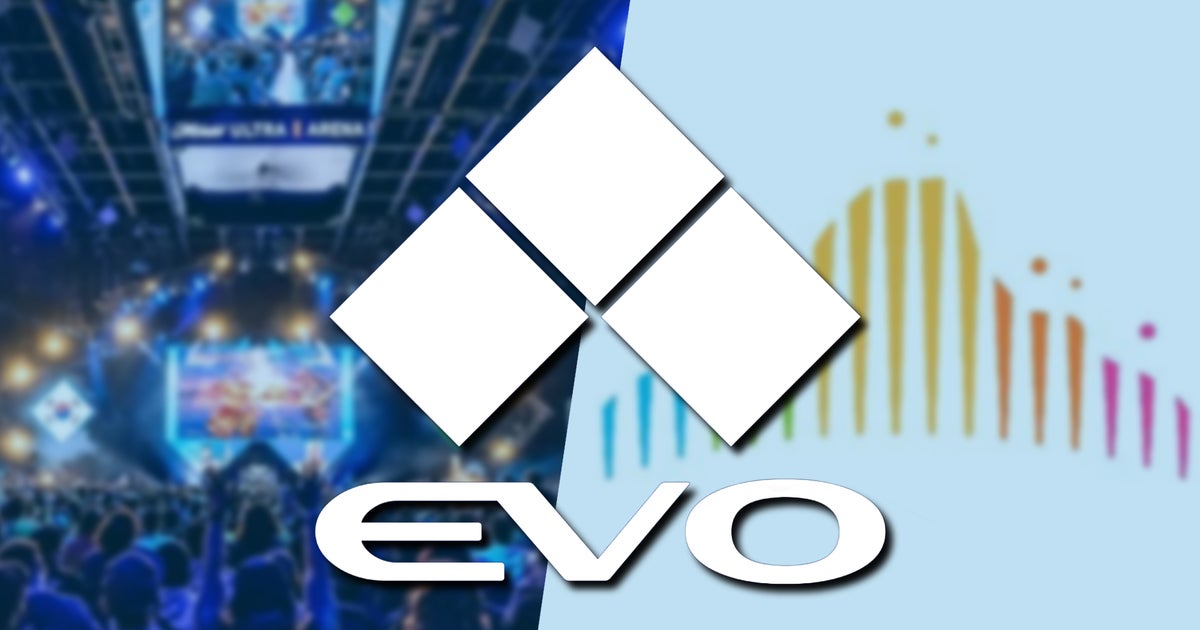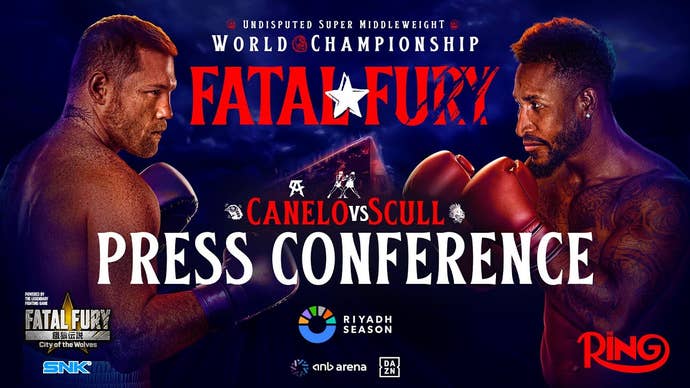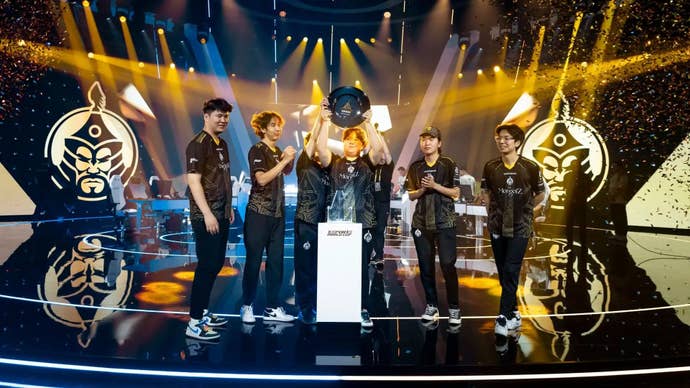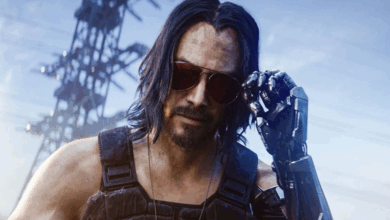The Saudi Arabian takeover of fighting games’ biggest tournament means players – and the wider community – have a choice to make: between its culture and a payout

Last week, RTS, co-owner of Evo, the biggest fighting game tournament in the world, announced it had been acquired by the Saudi Arabian city of Qiddiya. While far from the sole event of note across the genre, Evo remains a symbol of sorts for the fighting game community. Of all the tournaments, it is Evo that is held in the highest regard. Now, that community must choose between its long-lasting values and the bag.
That bag, one doubtless filled with financial support fighting game’s best players and organisers dearly desire (if not in some cases, outright need), comes with a price of its own. The Saudi Arabian government has in recent years been engaging in a mass sportswashing campaign across the gaming industry, buying up developers and events in order to paint a shining picture of the country. A country that, under this current government, has a history of human rights abuses, is ranked fourth globally on the slavery index, which assassinated the journalist and critic of the Saudi government, Jamal Khashoggi, in 2018, and which still employs state executions as punishment for non-violent criminal acts – those executions surging in 2025.
If the new RTS owners are flanking the tournament from its right, its left is no bastion from government influence either. Sony had until late last month been a co-owner of Evo while also being a major partner of the Saudi Arabian Esports World Cup. Its share was acquired by Nodwin gaming, a notable Indian esports business that, for once, actually has decades of event experience behind it, rather than the usual efforts from newcomers to milk money out of passionate young gaming enthusiasts. Sadly, as of July this year, it’s now also working extensively with the Saudi Arabian government for the country’s Esports World Cup media rights in India.
How did we get here? The Saudi Arabian venture into the video game industry has gone largely uncontested, save for a few professional players and the Geoguessr community, of all things. The Saudi Arabian government could not have picked a better time to start paying for relatively cheap PR. Esports organisations, having failed to create a source of sustainable income, scared off investors a few years back. This, to put it succinctly, means that the majority of the competitive gaming space right now is hungry for cash, save for a few particular scenes.
If the wider esports space is skint, then the fighting game scene is especially so. For years, the community has kept the arcade spirit alive, maintaining a norm of open-bracket tournaments that allow any aspiring player to sign up and try their luck against the best in the world. This has proven a good thing for steady growth and cultural development; going to a fighting game event is as much a social endeavor for the vast majority of attendees as it is a competitive venture.
The negative consequence of this however is that the competitive fighting game scene remains an especially difficult landscape for pro players to make a decent living. This trade has forced some of the best players in the world to focus on content creation for some financial stability. Bryant “Smug” Huggins for example, a beloved and highly talented player, has focused much of his efforts on YouTube and Twitch, and who can blame him? Sponsoring fighting game players has proven relatively unappealing due to the open bracket format. With the unpredictability an open bracket brings, as a sponsor there is no guarantee that your player will show up on a livestream, let alone on the finals stage. What’s the point in paying a player $10,000 if no one sees your company logo?

Tournament prize pools help a little but not much for the vast majority of professional players. A Street Fighter 6 player winning the Capcom Cup would win a fantastic $1m – but you can only have one winner. Coming 5th lands you $10,000, nary enough to sustain oneself for a year. Winning Evo 2025, the biggest event in the world, earned Dominican superstar MenaRD $16,932. Hardly superstar money. As a result the majority of players are content creators or live streamers – with the exception of a select few non-competitor figures like Stephen “Sajam” Lyon or Maximilian Miles Christiansen (AKA Maximilian Dood), the players are the influencers.
It is therefore disappointing, but not at all surprising, that when Saudi Arabia burst onto the scene with a bag full of cash, there was little by way of true pushback. Games publishers like Bandai Namco and Capcom appear entirely unbothered by any moral concerns; Saudi Arabia’s investment essentially amounts to a bucketload of free marketing for their games. Likewise, competitive players largely leapt to grab it with both hands. When the Esports World Cup showed up with “life changing money” – the first, held in Riyadh last year, had a total prize pool of more than $60m – those who have dedicated their lives to the genre weren’t exactly in a great position to turn it down.
This brings us to the real point here: that as a result of all this, the everyday people involved in the fighting game scene have been put in a lose-lose position. Take Victor “Punk” Woodley, who is the Evo 2024 Street Fighter champion and a fantastic player – he also dropped out of school to pursue a career as a pro long before any real Saudi involvement in the scene.
Or take Alex Jebailey. Everyone loves Jebailey. The owner and founder of fighting game event CEO, he’s been a tournament organiser since 2010, running both CEO and CEOtaku. Hosting fighting game events is expensive, stressful, and not very profitable. Doubly so these days, with ongoing economic upheaval in the USA that has hurt both wallets and the desire to travel.
This isn’t to single those individuals out – far from it. Instead the question is whether it’s really any surprise that Jebailey, with a company to keep afloat and a family to provide for, has been working on the Esports World Cup as a senior product manager for fighting games? Or that Woodley, having committed everything to fighting games as a career, hasn’t given it up in an instant? The situation with the fighting game community, and indeed much of wider esports, is a world away from that of, say, professional footballers, golfers, or belt-holding boxers – many of whom are multimillionaires already – who have happily made the same decision.

At the same time however, with notable fighting game players readily engaging directly with the Esports World Cup, ground was already ceded for the expansion of Saudi government influence. Likewise criticisms towards those who have taken a stance were numerous, and largely ignorant (or worse). Some would point to the USA’s sins, suggesting that taking a stand against Saudi’s government-funded Esports World Cup was hypocritical if those same people also competed in American events. But Evo and other American events had no government involvement – they were ultimately community events. Many participating in the EWC would argue that engaging directly is the only way to influence change, though a recent Amazon documentary on the EWC blurred out rainbow flags on players’ uniforms. And all the while executions in the country have only increased since the EWC’s emergence – so much for the hopes for a positive impact on human rights.
People might also state it’s good for the region, and would at least develop the competitive gaming community there. Except the EWC is an invitational, focused almost entirely on bringing foreign players in, rather than promoting local talent from the region. To those against the EWC as part of wider support for LGBT folks, they’d state it was perfectly safe for all attendees despite their gender or sexual identity – which may very well be true, but it certainly wouldn’t be true for those an hour down the road. All these justifications fade away with even the slightest of interrogation, and in most cases quickly expose themselves as excuses to make a quick buck without having to stop and question it.

This week it was made clear, to even those who were happy not thinking too hard about the wave of sportswashing, that the Saudi Arabian government had no intention of stopping its spending spree. It wants it all. I’m certain there are wonderful people working at Evo, with their heart in the right place and a desire to serve the community just as they have for years. I’m sure Evo Vegas next year will be great fun – we may even see a substantial increase in the prize pools. But the event now is – regardless of their intent – a component in the sportswashing venture. It’s a bummer, but that’s the reality.
There’s no regulatory body to stop this, and no bigger fish (or frankly given the state of esports’ profitability, greater fool) to buy the tournament from its new owners. And so this is unlikely to go away, at least unless the Saudi Arabian government decides competitive gaming isn’t worth the squeeze, or that only a mere handful of fighting game fans will ever actually travel to Qiddiya without getting paid to do so.
The consequences are unavoidable: any diehard fighting game fans, competitive players, and all the wider community members from devs and publishers to event organisers on the ground, find themselves with a decision to make. Stay true to the long-held ideals of the FCG – that any and all are welcome – or take the money with full knowingness of where it’s come from, and what that money truly means. At the very least, it’s time for those who have expressed their displeasure to actually turn those words into action, to support grassroots events – once again – and to carve a line in the sand, though that as always is far from easy. For those who haven’t, it’s now absolutely clear: the time where it was once possible to turn a blind eye to sportswashing in fighting games is absolutely over.



